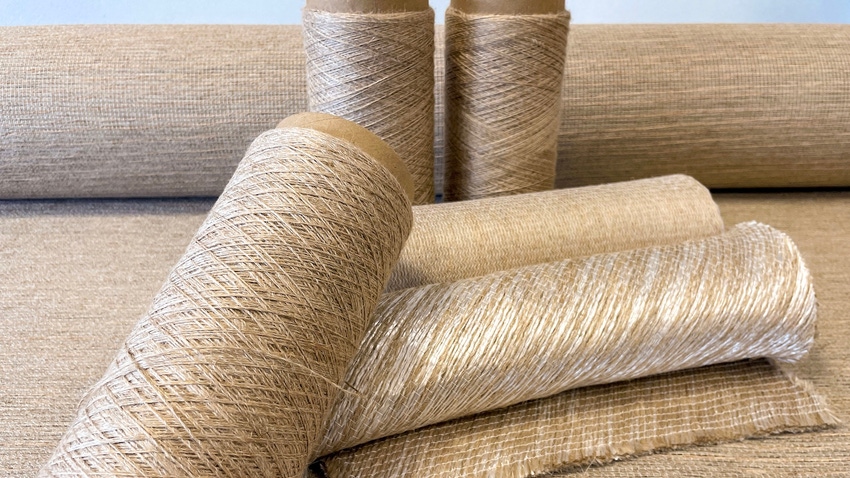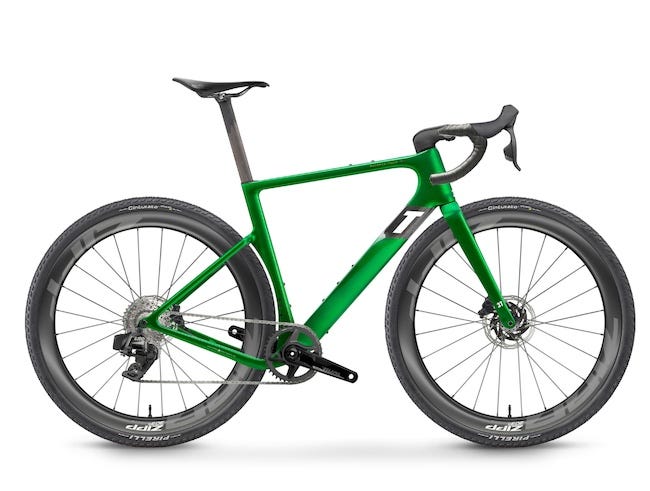Biocomposites Revolutionize Carbon-fiber Replacement in Cycling Industry
New products from Scale Advanced Biocomposites aim to reduce materials costs and greenhouse emissions while enhancing performance.
March 15, 2024

At a Glance
- The materials are designed to replace or enhance carbon fiber in lightweight composites
- Benefits include low density and excellent damping characteristics
- Yarn and filament options available
Scale Advanced Biocomposites, an innovator in bio-based composite reinforcements, unveiled its BIO|Power and COR|Power product lines at the recent JEC World show in Paris. The materials are designed to replace or enhance carbon fiber in lightweight composites. By doubling down on the inherent benefits of natural fibers and bio-based materials, including low density and excellent damping characteristics, Scale enables composites manufacturers to move to sustainable materials and provide new levels of performance while reducing materials costs. The two available options are:
BIO|Power yarns blend multiple natural fibers to create a range of performance and cost characteristics for sustainable composites. The first BIO|Power EX blend is expected to reduce fiber costs up to 40% and greenhouse emissions up to 95% versus carbon fiber.
COR|Power is a damping filament that helps reduce the effects of vibration and harshness in carbon-fiber composites by up to 30% when incorporated at 10% by weight.
Addressing stiffness/comfort trade-off
Scale is working initially with bicycle manufacturers to address industry challenges, including the trade-off between stiffness and comfort, which has been exacerbated by the focus on aerodynamics in modern bicycle design, and improving product margins, which particularly benefits manufacturers producing in Europe and North America. Scale’s materials can provide significant benefits to manufacturers and cyclists alike, improving stiffness-to-weight performance, impact resistance, and vibration damping for a smoother ride.
“The cycling market is a perfect test bed for us. Cyclists are sophisticated customers with an unwavering demand for performance,” says Scale CEO Lance Johnson. ��“The damping properties of our materials, coupled with the ability to enhance stiffness without adding weight by using BIO|Power in narrower tube profiles, improve product performance while reducing environmental impact.”
A bicycle built for sustainability
“We’re working with Scale as part of a long-term project to improve sustainability in bikes,” said Martin Meir, managing director at Reap Design in the UK. “In early testing, we’ve combined BIO|Power and COR|Power to reduce carbon-fiber content by 20%, [while] increasing frame stiffness by more than 5% without weight penalties. Additionally, we expect better compliance in the frame and lower transmission of road vibration, which will reduce rider fatigue."

Made-in-Italy off-road bike trials biocomposite delivering enhanced stiffness-to-weight. Image courtesy of 3T Cycling.
“Collaborating with Scale gives us the opportunity to use more sustainable materials in 3T’s proprietary production processes,” said Enrique Romero Pineda, managing engineer at 3T Cycling. “We’ve tested BIO|Power in our 3T RaceMax Italia layup, enhancing stiffness-to-weight of the bottom bracket by 5%. We’re looking at how BIO|Power can reduce the quantity of material we use while preserving our current stiffness-to-weight to have an even greater impact on our greenhouse emissions.”
About the Author(s)
You May Also Like




